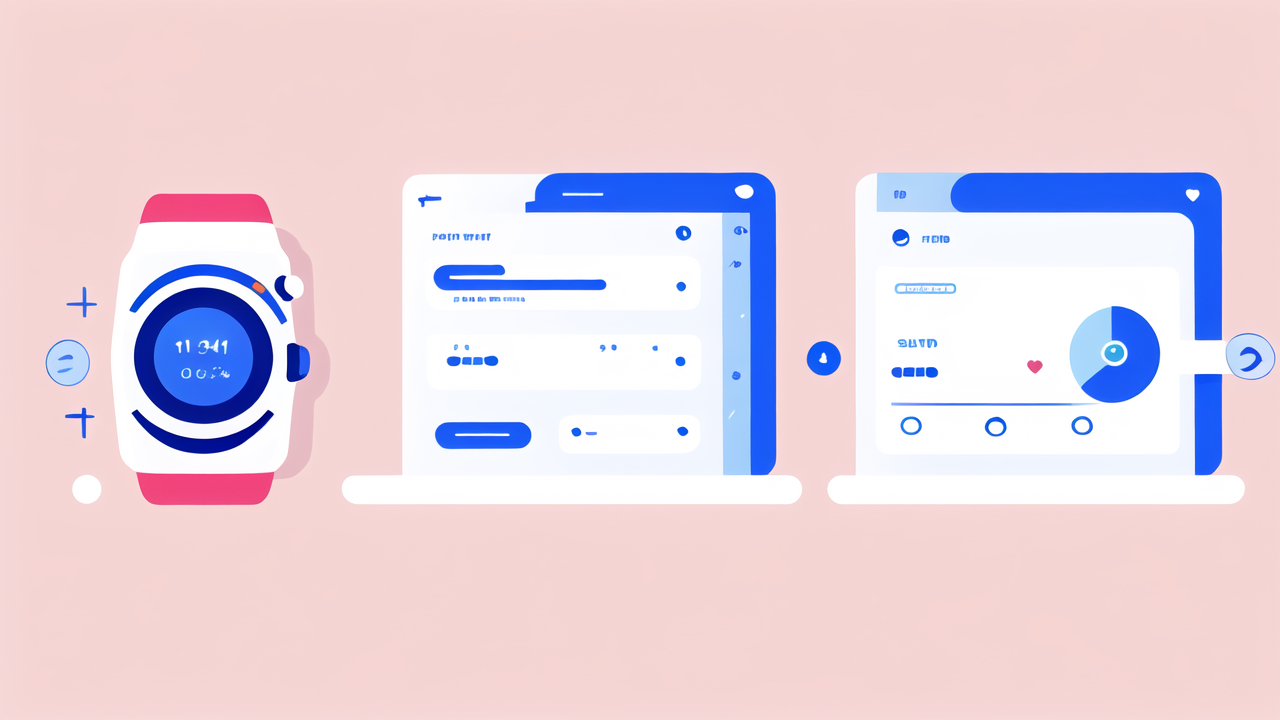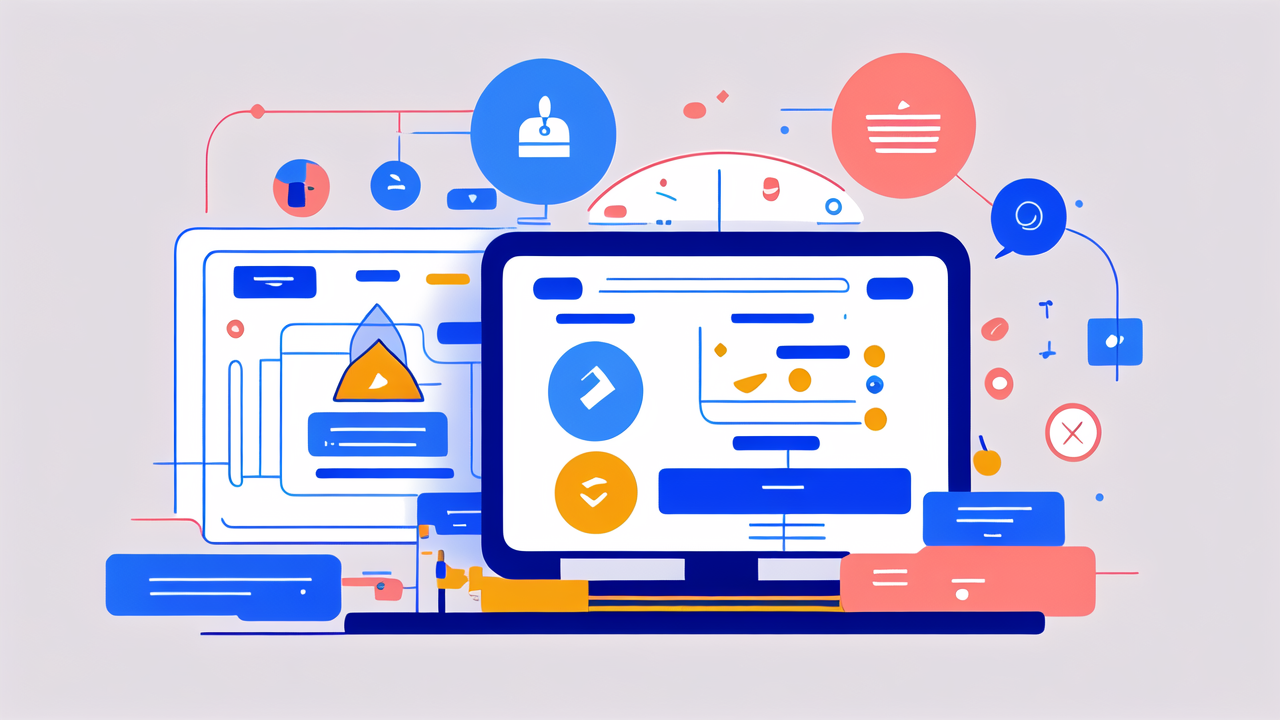Understanding Health Tracking: A Deep Dive into Wearable Technology
The Evolution of Health Tracking Devices
Health tracking has come a long way since the days of simple pedometers. Today's wearables are sophisticated devices. They offer a wide range of features for monitoring our health and fitness.

The journey began with basic step counters. These evolved into fitness bands that tracked activity and sleep. Now, we have smartwatches that can monitor heart rate, blood oxygen levels, and even detect falls.
This evolution reflects our growing interest in personal health data. It also shows how technology has advanced to meet these needs. Modern wearables are not just gadgets, but powerful health tools.
Key Metrics and Data Collected by Smart Wearables
Smart wearables can collect an impressive array of health data. Here are some key metrics they track:
- Steps taken and distance traveled
- Heart rate and heart rate variability
- Sleep duration and quality
- Calories burned
- Blood oxygen levels
- Stress levels
- Menstrual cycles
- ECG readings (on some advanced models)
These devices can also track workout-specific data. This includes pace, route, and intensity for activities like running or cycling. Some even offer guided workouts and recovery recommendations.
The data collected provides a comprehensive view of one's health and fitness. It allows users to spot trends and make informed decisions about their lifestyle.
The Role of AI and Machine Learning in Health Tracking
AI and machine learning are revolutionizing health tracking. These technologies can analyze vast amounts of data to provide personalized insights.
For example, AI can detect patterns in your sleep data. It might suggest ways to improve your sleep quality. Machine learning algorithms can predict potential health issues based on your metrics.
These technologies also help in creating more accurate and efficient tracking. They can filter out noise in data and provide more reliable readings. This leads to better health insights and more actionable recommendations.
AI and machine learning are making wearables smarter and more useful. They're turning raw data into meaningful health information.
Implementing Health Tracking Solutions in the United States
Regulatory Considerations for Health Tracking Devices
In the US, health tracking devices face various regulatory challenges. The FDA oversees these devices, especially those making health claims.

Many wearables fall under the category of "wellness devices." These have less strict regulations. However, devices that diagnose or treat conditions face more scrutiny.
Companies must ensure their devices are accurate and safe. They also need to be clear about what their devices can and cannot do. Privacy is another key concern, given the sensitive nature of health data.
Manufacturers must navigate these regulations carefully. They need to balance innovation with compliance to bring their products to market.
Best Practices for Health Data Management and Security
Protecting health data is crucial. Here are some best practices for managing and securing this sensitive information:
- Use strong encryption for data storage and transmission
- Implement strict access controls
- Regularly update security measures
- Conduct frequent security audits
- Provide clear privacy policies to users
- Allow users to control their data sharing preferences
- Comply with relevant data protection laws (like HIPAA in the US)
- Train staff on data security and privacy measures
Companies should also be transparent about how they use and protect user data. This builds trust and encourages adoption of health tracking technologies.
Integration with Existing Healthcare Systems
Integrating wearables with healthcare systems can greatly improve patient care. It allows doctors to access real-time health data, leading to more informed decisions.
Many hospitals and clinics are exploring ways to use this data. They're developing platforms that can receive and analyze information from various wearables.
However, integration faces challenges. These include:
- Ensuring data accuracy and reliability
- Standardizing data formats across different devices
- Addressing privacy concerns
- Training healthcare providers to interpret and use the data
Despite these challenges, the potential benefits are significant. Integrated health tracking could lead to more personalized and proactive healthcare.
The Future of Health Tracking: Trends and Predictions
Innovations on the Horizon for Health Tracking Technology
The future of health tracking looks exciting. Here are some innovations we might see:

- Non-invasive glucose monitoring for diabetics
- Continuous blood pressure monitoring
- More advanced ECG and arrhythmia detection
- Improved stress and mental health tracking
- Sweat analysis for hydration and electrolyte balance
- Early detection of diseases through biomarker tracking
We may also see more integration with other devices. For example, smart home systems could adjust based on your health data.
Wearables might become more discreet too. Think smart rings or even smart clothing. The goal is to make health tracking seamless and continuous.
How Health Tracking Devices are Shaping Consumer Behavior
Health tracking devices are changing how people think about their health. They're making people more aware of their daily habits and choices.
Many users report being more active after getting a fitness tracker. They're motivated by seeing their progress and meeting daily goals.
These devices are also encouraging people to prioritize sleep. Users are becoming more aware of their sleep patterns and trying to improve them.
Some people are even sharing their data with doctors. This can lead to more informed discussions about health and lifestyle changes.
Overall, health tracking is making people more proactive about their well-being. It's shifting the focus from treating illness to maintaining wellness.
The Impact of Big Data and Analytics in Health Tracking
Big data and analytics are transforming health tracking. They're turning vast amounts of data into actionable insights.
On an individual level, this means more personalized health recommendations. Your device might suggest diet changes based on your activity and sleep patterns.
On a broader scale, big data can reveal population health trends. This could help in predicting and preventing disease outbreaks.
Analytics can also improve the devices themselves. Companies can use data to refine their algorithms and make their tracking more accurate.
However, this reliance on data raises privacy concerns. It's crucial to balance the benefits of data analytics with protecting individual privacy.
In conclusion, health tracking is evolving rapidly. It's becoming more sophisticated, integrated, and influential in our lives and healthcare systems.




Leave a comment
This site is protected by hCaptcha and the hCaptcha Privacy Policy and Terms of Service apply.